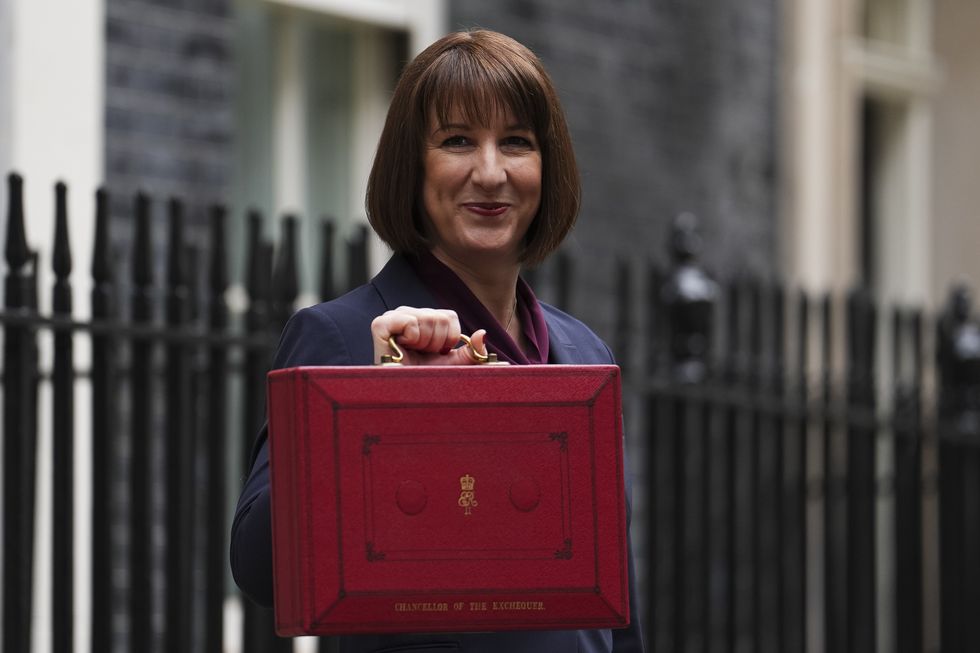Britain needs 'carrot and stick' approach to benefits 'SCROUNGERS'
GB NEWS
Britain is one of the few nations across the developed world which did not see a decline in claimants after the pandemic
Don't Miss
Most Read
Trending on GB News
Half of benefit claims by the end of the decade will be for sickness, according to a government spending watchdog.
For the first time, it has been estimated that the handouts will cost the government approximately £100billion each year - double the price during pre-pandemic levels.
As a result of the cost of these benefits, the British public is expected to pay more tax without any improvement across public services.
Delivering the Budget on Wednesday, Chancellor Rachel Reeves said action to "get people off long-term sickness benefits and back to work" played a key part for growing the economy.

Chancellor Rachel Reeves said action to "get people off long-term sickness benefits and back to work" played a key part for growing the economy
PA
The Office for Budget Responsibility (OBR) has attributed the dismal health of the nation as the largest individual risk to public finance sustainability, as it hikes up the price tag of the NHS and welfare spending.
Currently, 2.8million people are off work, claiming that they are suffering from a long-term sickness.
The UK is one of the few countries across the developed world which did see a decline in recipients following the global pandemic.
However, instead of claimants requiring the benefits as a result of physical sickness, the rise is due to an increase of individuals - particularly across the younger population - claiming the money for problems with mental health.
LATEST DEVELOPMENTS:
Around 37 per cent claims have been recorded for mental health issues, which is a nine-point increase since pre-Covid levels - with those below the age of 40 making claims on account of their mental health has risen by 150 per cent.
Now, the OBR said that it expected 420,000 more households to claim Universal Credit health benefits by the end of the parliamentary term, meaning that over half of Universal Credit claimants will be on account of health issues.
Echoing the words of many of her colleagues, work and pensions secretary Liz Kendall accused the "appalling legacy of the Conservative government" for leaving "hundreds of thousands more people on sickness and disability benefits, harming their life chances and costing the taxpayer billions."
She told The Times: “This is unacceptable, which is why we will bring forward a proper plan to get Britain working and put the benefits bill on a sustainable course.”

Liz Kendall said she would "bring forward a proper plan to get Britain working and put the benefits bill on a sustainable course"
PADeputy director of the IFS Carl Emmerson explained that "enormous pressure" was being placed on the public purse, describing the surmounting numbers of sickness benefit claimants as "one of the reasons why we're doing a lot of public spending now and not getting great public services."
He called on the government to study this area "very, very carefully", although he admitted that welfare reform was "not an easy area", saying: “Previous attempts to try and get the numbers down have often failed to achieve anything like what was hoped of them.”
Shadow secretary Mel Stride criticised his Government counterpart for her "betrayal" after it was announced that Labour would overhaul disability benefits, which saw the end of cash payments to those struggling with their mental health.
He said: “Labour have completely lost control of the welfare bill, abandoning my plan to save £12billion and instead choosing to clobber working people with £25billion in tax rises.”
Adding to government criticism, Andy Cook of the Centre for Social Justice think tank said: “The budget provided a glimmer of hope that this government has a plan to tackle the inactivity crisis. But as these forecasts show, Liz Kendall must urgently hand powers back to local communities to get Britain working again”.







